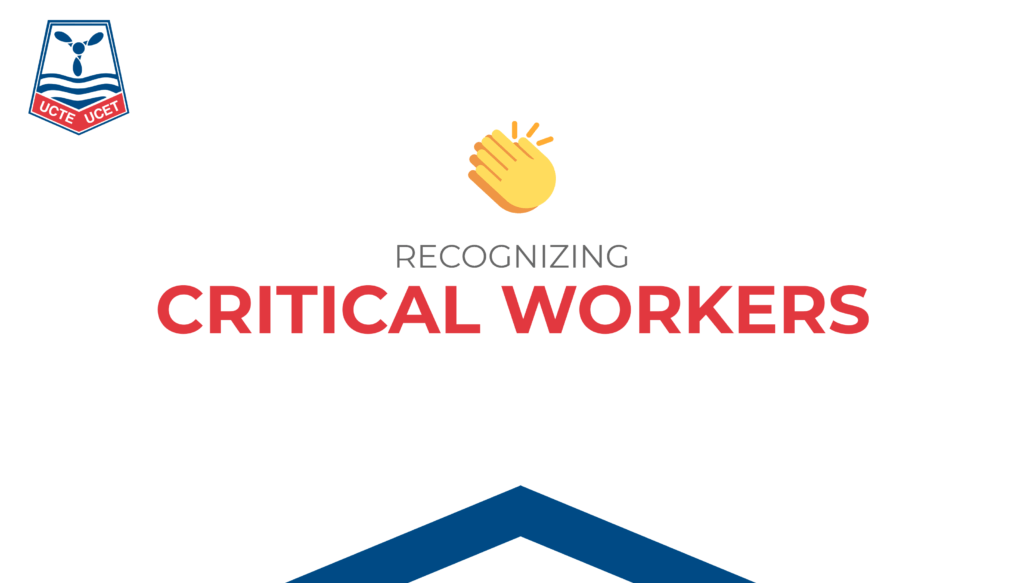UCTE critical workers doing their part to help flatten the curve
Front-line workers of every kind are putting themselves at risk each and every day in the fight against the novel coronavirus. While some of our members are able to work from home, others still report into work each and every day. They may not be grocery store clerks or health care workers but some UCTE members are vital workers in helping Canadians to stay safe at home.
Many of us have heard reports in the media or from government spokespersons the terms “essential” and “critical” interchangeably. This has caused confusion for managers and workers alike. To clarify, critical or vital workers are not the same as essential workers. “Essential workers” is a term meant to be used to define those who must continue working during collective bargaining in the event of a labour disruption. Whether or not a person is designated as “essential” does not have bearing on whether they work at home or in the workplace during the pandemic.
Kaleb Milne in Hay River, NT is one such critical worker. ORSI, formerly Northern Transportation Company Limited, are responsible to facilitate the transfer of goods to many northern remote communities. During their off-season they also provide vessel maintenance for various organizations including the Canadian Coast Guard. As a result, members at Local x3040 have been designated as vital and therefore must report into work.
Kaleb is the only tradesman in the shop. He explained that members deal not only with Canadian vessels but foreign ones as well. Many security precautions are in place when he arrives. Part of the clearance procedure at the gate involves checking temperatures daily and washing of hands. If you are not well, the employer is sending members home with pay.
“The employer has done some things like repealed the sick day-limit, but there are other challenges as well,” said Kaleb. He explained that one challenge is if a person is directed to self-isolate by the employer, they are only getting straight pay however are not getting paid the overtime hours that they would have worked. “It’s one of the things that the local is trying to work on,” he said.
Sister Jaanika Klimsto is an Engine Room Attendant aboard the CCGS Griffon, located in the Great Lakes. There are strict rules for crew change. Sister Klimsto explained that crew members must rent a vehicle and have no more than 3 people in the car. Once they arrive at the base, the car is given a thorough cleaning by CCG staff wearing protective gear. Then 3 crew members who are coming off rotation will return the rental car.
New procedures such as temperature checks are also in place before boarding the vessel and during a crew’s 28-day shift. These new measures have resulted in them running low on some personal protective equipment such as gloves or tympanic thermometer covers. “For my work, I was already wearing gloves to protect our hands. We are now having to use thicker ones, like the ones you use to do dishes, since we haven’t anymore of the thinner ones in stock. This does cause some challenges with dexterity,” explained Jaanika. Regardless, crew members are expected to self-monitor during their time onboard vessel.
“We do not have shore leave unless it is for essentials such as fuel, water, oil or groceries,” she said. The good thing though is that they can still go home at the end of their rotation. “Things are not drastically different since there is not a lot of contact with the public (for us).”
From safety inspectors to those responsible for water management; from Ships crew members to those providing security and maintenance; to all our members who are deemed critical whose work in some way helps the rest of us to self-isolate, we thank you.
